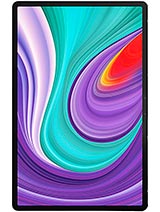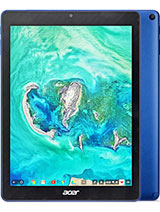Apple says don't use a webcam cover and we agree: Here's why By CNET
Now, you see me, and now you don't do you use a camera cover like this. One apple says you shouldn't, because it might break your screen, but is there even a good reason to cover your camera in the first place today, I'm going to show you why you don't need to cover your camera and why you might still want to anyway, earlier this month, apple released a support document urging users don't close your MacBook, MacBook Air or MacBook Pro with a cover over the camera. They say closing the laptop with a cover like this installed. Not only puts you at risk of damaging the laptop screen, but that it may also interfere with the ambient light sensor and prevent features like automatic, brightness and true tone from working screen. Damage appears to be a real issue, as shown by Reddit user cool bee in this photo from December, and if Apple is releasing this advice right now, it's safe to assume that broken screens have been on the rise, perhaps due to more people using their laptops for Zoom calls, while working at home. But is there a good reason to cover up the camera on your laptop? The answer, of course, is maybe surely, since the first webcams were attached to computers, hackers and other nerd wells have been using them to spy on unsuspecting victims.
There are, of course, anti-malware programs and other software solutions that can prevent prying eyes from seeing you in the altogether, but many opt for a more analog approach to security back in 2016. This photo of Mark Zuckerberg attracted some attention for the piece of tape covering the laptop's camera and around the same time, the FBI issued guidance that covering your camera was a good idea, so just how big a problem is webcam hacking. These days, I asked CNET's resident laptop expert and voice of reason, Dan Ackerman, to help explore the topic. How likely is it that someone's going to spy on you using your webcam? It's really a very targeted attack. There are ways to do it, but it's not an attack of opportunity if you're a nuclear scientist or something- and you have reason to believe that you are going to be specifically targeted.
Well then, yes, I would be concerned. If you're an average Joe on the street um, it's not just like a phishing email where, like they just try to capture as many people as humanly possible, it's generally a more advanced technique. That really requires some forethought, so apple says: there's actually no need to cover up your camera since the little green light next to the camera, supposedly, will tell you if it's in use or not. Is that true uh? Technically the little light? If you have one on your camera, will tell you whether it's active or not? But if your system has been penetrated to the point where someone can remotely activate your camera, it's certainly within the realm of possibility. They can turn off your light too.
There's really no such thing as a system that is hack, proof or foolproof. All you can really do is reduce your threat profile. Make yourself less of an easy target.90 of your cybersecurity threat comes from the lowest tech forms of hacking. Not these relatively advanced high cost difficult to execute things, and I'm talking about things like social hacking and fishing. You are a million times more vulnerable to something like that than you are to an uh movie style guy in a dark room clicking on his keyboard going I'm in uh, then you are getting an email that reports to be from your bank or from eBay, and it looks, and you're not paying attention.
You click on it. So say I've done a good job of actually protecting myself from the social engineering part of it. What can I actually do on my computer to try and prevent people from seeing what I'm doing I find keeping track, of which apps have permission to use your camera or your microphone or your location is really almost more important on your phone than on your laptop uh, but in both cases, especially on the apple side, it is fairly easy to control that and then see that list, and again you get the permission pop-ups for your camera and microphone. Unless you have a very specific reason to use them, you should deny those permissions the first time. The rest, you can always activate them later, if you want to, if you feel more comfortable, covering up your webcam go for it, it's not going to hurt.
I don't think it's particularly helpful for most people unless you have a specific threat profile that makes you seriously think that you are endangered, so we've determined that it's not very likely that the average person needs to worry about being spied on and that it's really hard to hack a camera without you knowing. But if that's not enough for you and you still really want to cover your camera, here's what apple suggests avoiding breaking your screen make sure the camera cover is not thicker than an average piece of printer paper. A piece of a post-it note can work nicely, avoid using a camera cover that leaves adhesive residue. These handy stickers claim to be residue free and if you install a camera cover, that's thicker than.1 millimeters, remove it before closing your computer. These little guys are pretty thin, but if we've learned anything today, it's best to remove them.
So what about you? Do you cover up your camera when it's not in use? Let us know in the comments below and be sure to subscribe for more videos like this okay and stop good one. All right, I have to go to the bathroom.
Source : CNET


























